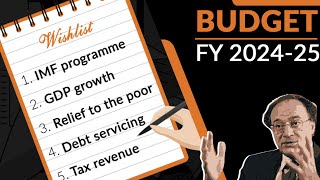China's yuan is still expected to breach the key 7-per-dollar mark within six months as a dimming economic growth outlook is likely to push the central bank toward easier monetary policy this year, a Reuters poll found. The number of analysts predicting the yuan will weaken to 7 per dollar or beyond at any time during the polling horizon increased in the latest poll from previous months and was the highest since a July 2017 survey.
Although the yuan fell about 6 percent last year, with most losses coming after June when the US-China trade war escalated, it still did not crack the 7-per-dollar rate.
The managed currency, also known as the renminbi, went through wild gyrations last year, with the spread between its high and low the widest in almost three decades. For the second month running, a strong majority of analysts who answered an extra question said the yuan would weaken to 7 per dollar within six months, despite a widely-held view the Chinese authorities will step in to defend it at that key level.
That view is largely driven by expectations the Chinese economy will lose further momentum in 2019 amid softening domestic and export demand, prompting the central bank to take more steps to reduce the risk of a sharper slowdown.
However, median estimates in the wider Jan. 2-8 poll of more than 70 foreign exchange strategists showed the yuan will only weaken about 1.5 percent to 6.95 per dollar by end-June from about 6.85 on Tuesday. It is then forecast to end the year at 6.89 per dollar. Much will also depend on how long it takes China to stabilise its cooling economy and whether Washington and Beijing end their trade war.
"Looking at the Chinese fundamentals, the economy is slowing and the central bank is easing monetary policy, with a lot of uncertainties over the next steps for the trade dispute between the US and China," said Erik Nelson, currency strategist at Wells Fargo.
"All these point to further weakness in the Chinese currency," he added.
US Commerce Secretary Wilbur Ross said on Monday the United States and China could reach a trade deal that "we can live with" as dozens of officials from the world's two largest economies held talks in a bid to end a trade dispute that roiled global markets last year.
Despite optimism around the talks in Beijing, some respondents warned that the US-China relationship remained on shaky ground and that tension could flare up again soon.
"Until the outcome in the latest US-China trade truce proves as substantial as the working level discussions, the risk remains for more tariffs on each other's goods. If the US reinstates the decision to lift the tariff rate on $200 billion worth of China's goods to 25 percent from 10 percent, the yuan could depreciate to 7.30 per dollar," noted Philip Wee, currency strategist at DBS Bank.
BR100
7,977
Increased By
398.8 (5.26%)
BR30
25,602
Increased By
1383.8 (5.71%)
KSE100
76,208
Increased By
3410.7 (4.69%)
KSE30
24,438
Increased By
1225 (5.28%)




















Comments
Comments are closed.